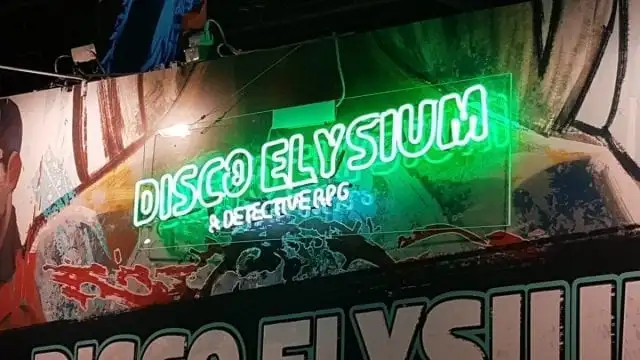If you’ve heard of Disco Elysium, you probably don’t know what exactly to think of it. It’s quite the eccentric isometric CRPG, set in an urban fantasy setting with a lot of influence from hardboiled crime fiction. Imagine an Infinity Engine game written by Dashiell Hammett and Raymond Chandler, and you might get the idea. It may be a bit too experimental to reach a mainstream audience, but it should still be a very interesting RPG when it releases.
First announced in 2016, when it was known by the equally eccentric name “No Truce With The Furies,” Disco Elysium is definitely not your average gamer fare. That could be why it might end up so unique. Last week, we saw the first part of an article called “Choose your own misadventure,” published on the French PC gaming outlet Canard PC. Now the second part is out, which features an intriguing interview with lead designer and writer Robert Kurvitz.
Mistakes as stepping stones
Kurvitz talks about how he expects the player to make mistakes in Disco Elysium, but the game won’t punish you or prevent you from accessing certain content in the game when you do. Instead, mistakes should impact the way you will react in the future, as you respond to what just happened. The mistakes should make you feel something, whether it is embarrassment, apprehension, or regret. As a developer, studio ZA/UM has spent all this time in development to make sure that the game’s RPG systems reflect the way you’ll make mistakes.
He then proceeds to give an example of this. At a certain point in the game, you’ll have to interrogate eight individuals, all of whom are carrying weapons. It’s just you and your partner against them. The men confess the crime, but then they start taunting you, provoking you into giving in to violence. And you can’t do anything against them. You’re powerless, but you are a cop who has to arrest them. If you fail to bring the situation under control, your character starts going ballistic. He pulls his gun out, threatens to kill himself, and so on. This episode allows you to learn a lot about your character that you wouldn’t have otherwise. This allows a deeper and more intriguing character development, perhaps not unlike the revelations of The Nameless One in Planescape: Torment.
Disco Elysium aims to exalt its medium
Kurvitz goes on to discuss how writing in video games is often influenced by writing in movies, with cutscenes often replacing interaction altogether. The ZA/UM writing and design team are more interested in making the writing suit the video game medium rather than imitate film. Games must have interactions with choices, consequences, and resemble a digital Rubik’s Cube that adapts and changes depending on the player’s actions and choices. Nonlinear design and writing is a huge challenge, but it’s ultimately what games can do better than other media.
This is a fairly comprehensive interview with Kurvitz, and though the translation from the original French is a bit stiff, it’s still very interesting if you’re fascinated by this kind of open-ended storytelling in CRPGs. Disco Elysium doesn’t have a release date yet. You can, however, wishlist the game on Steam and follow it on Twitter.
What do you think of Disco Elysium? Is it too ambitious and too eccentric to reach a wider audience? Or is there a niche for it? Drop your comments below and tell us your thoughts!







Published: Jul 22, 2019 03:23 pm